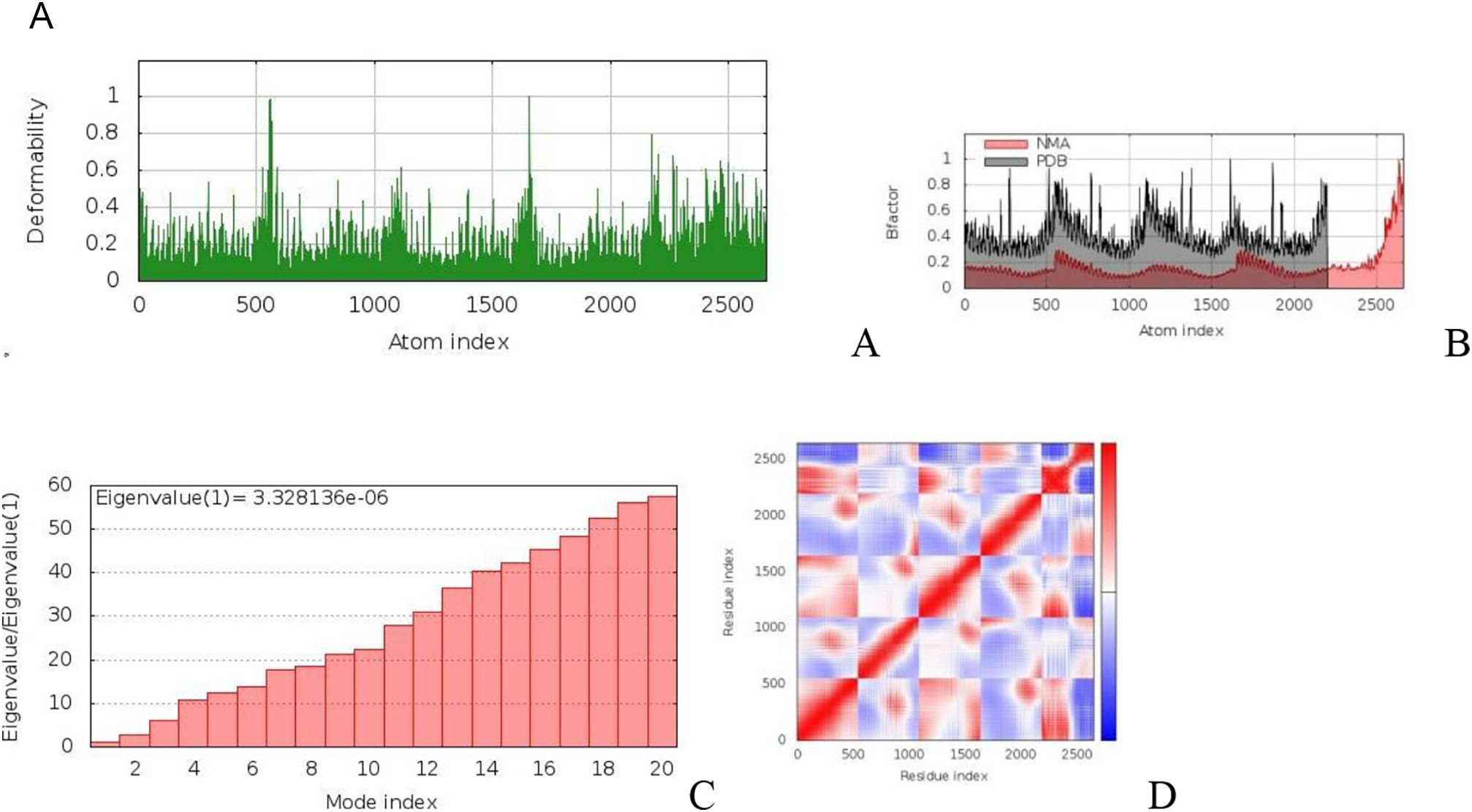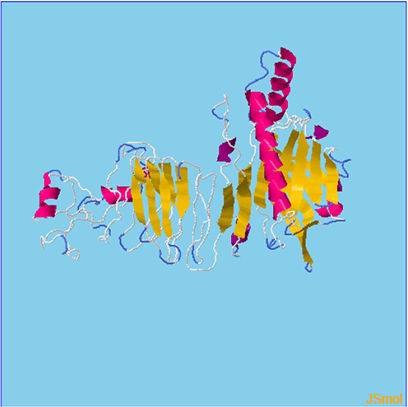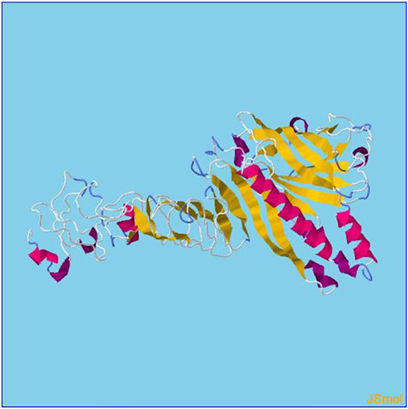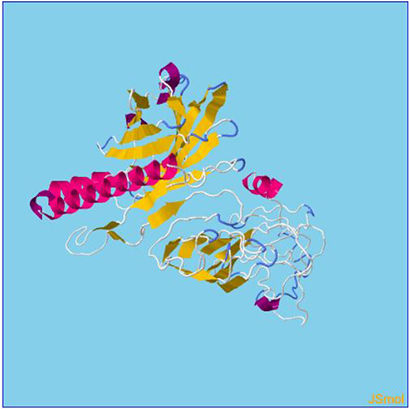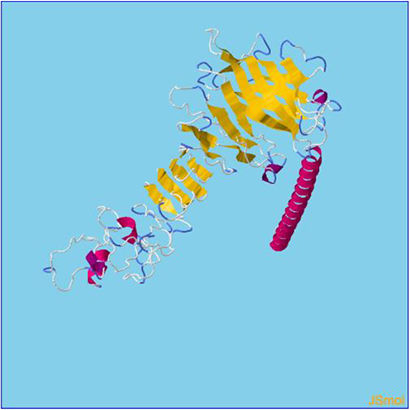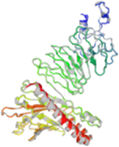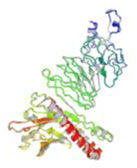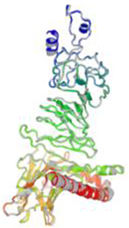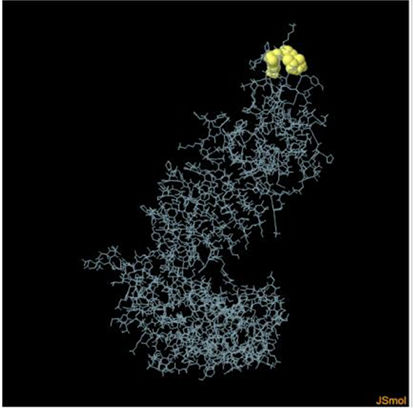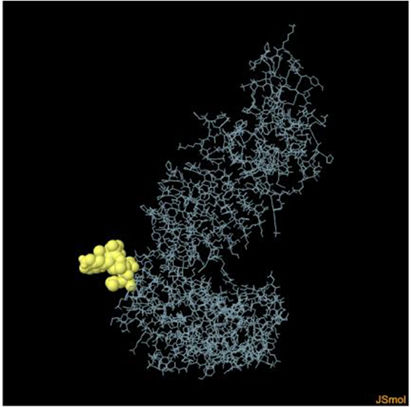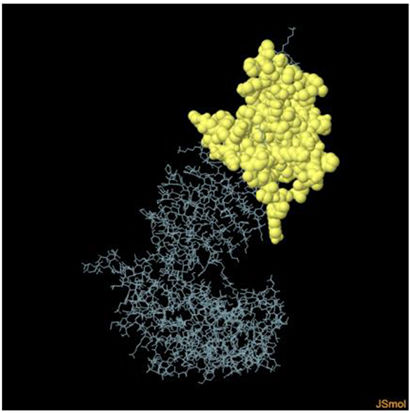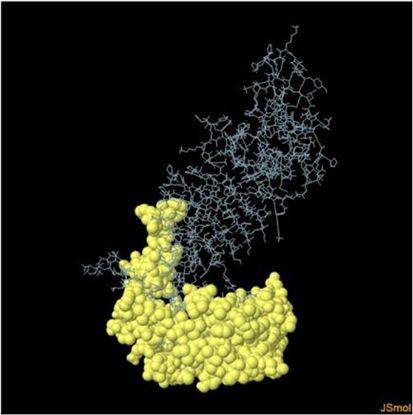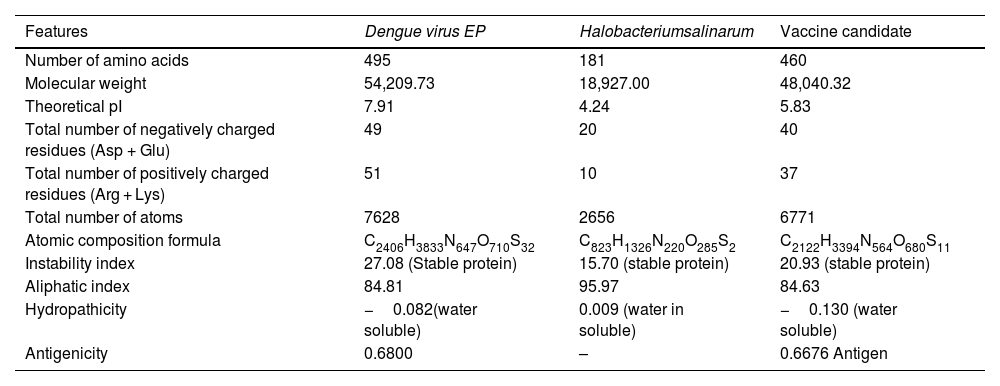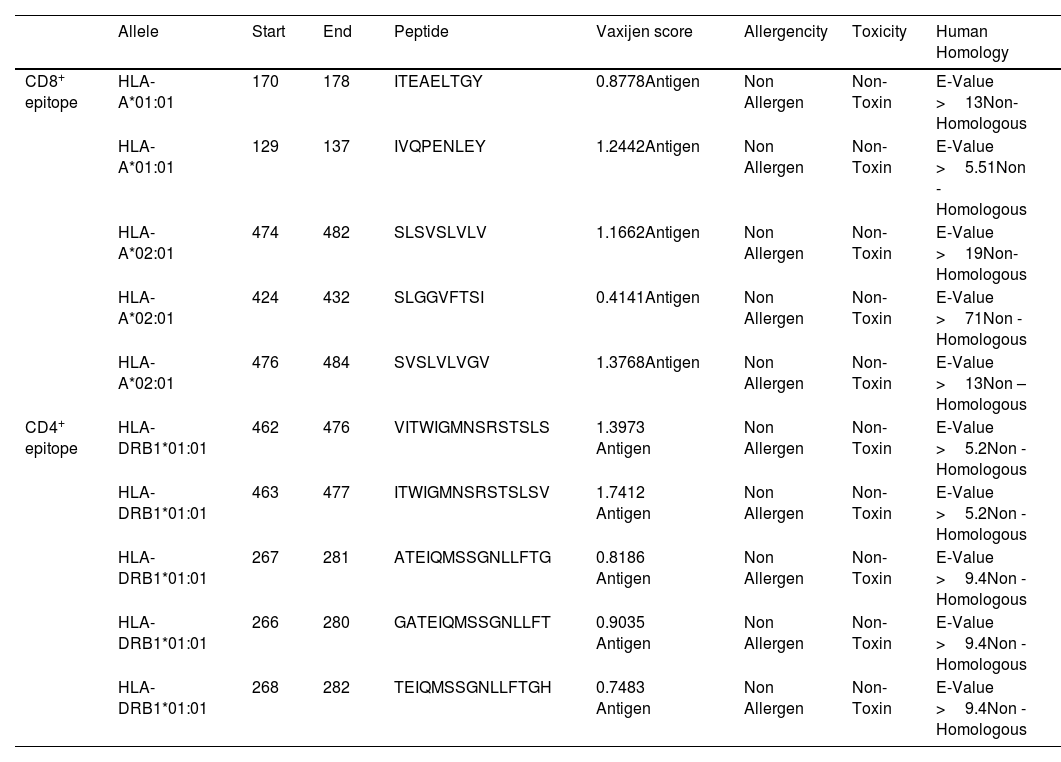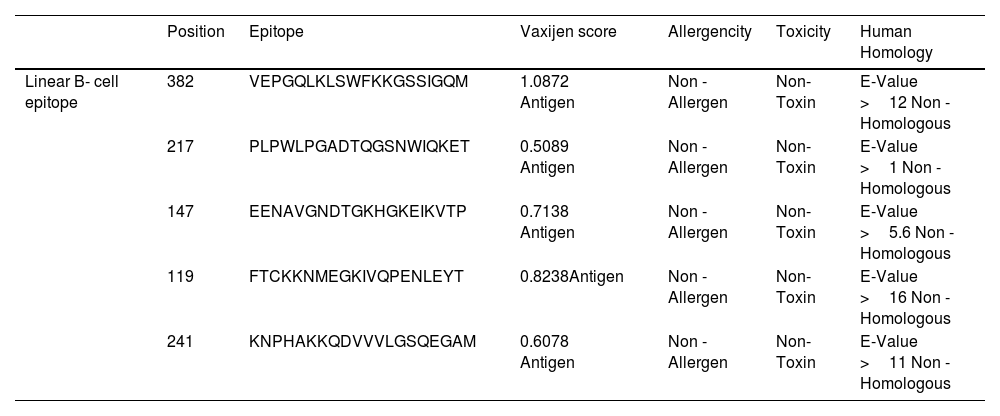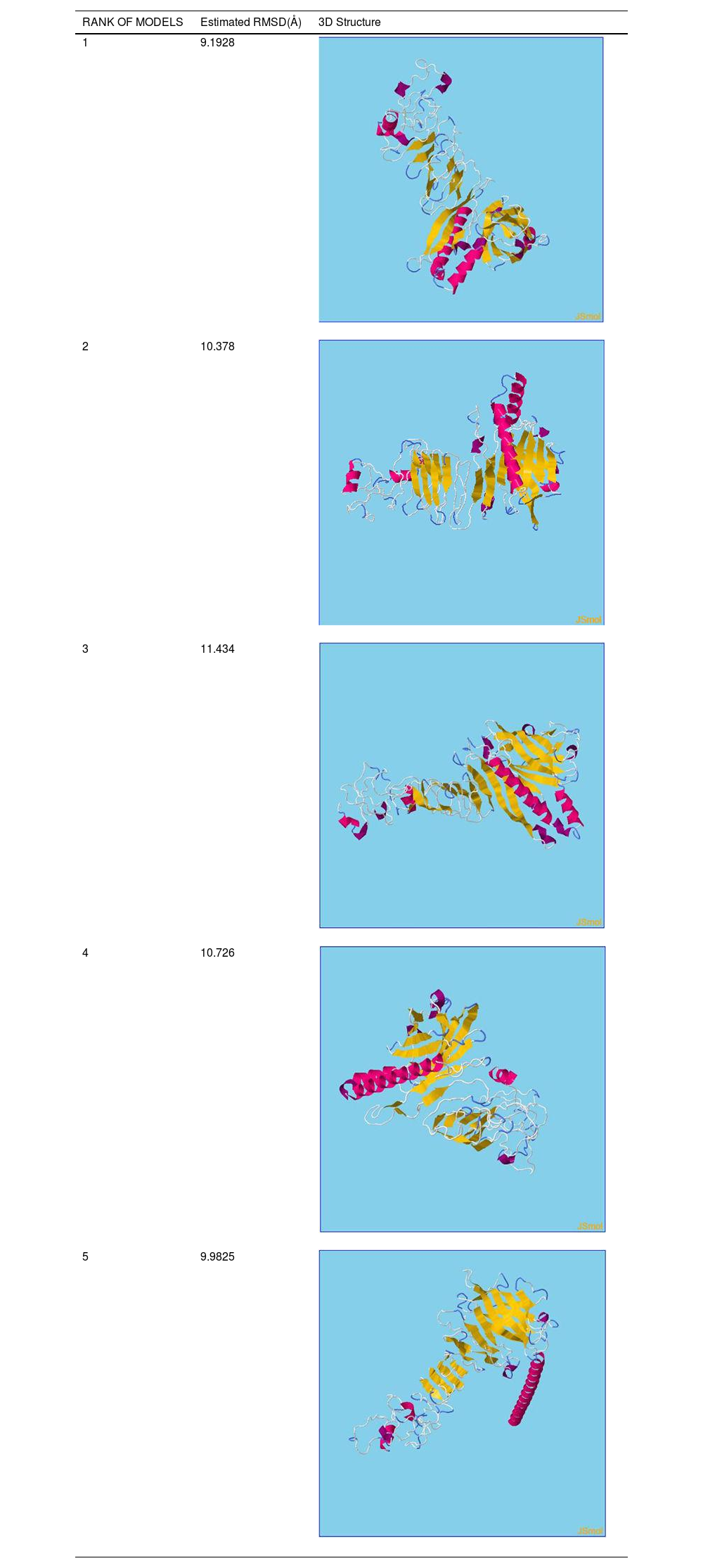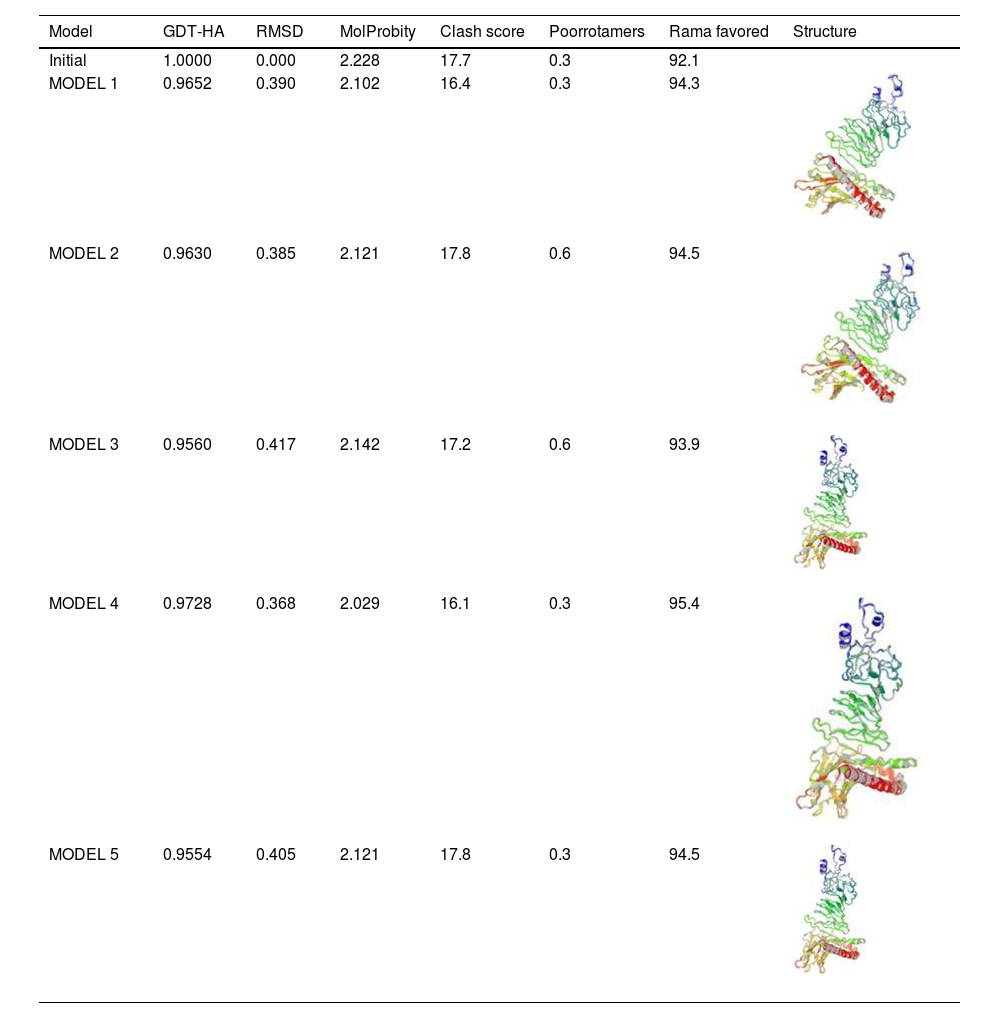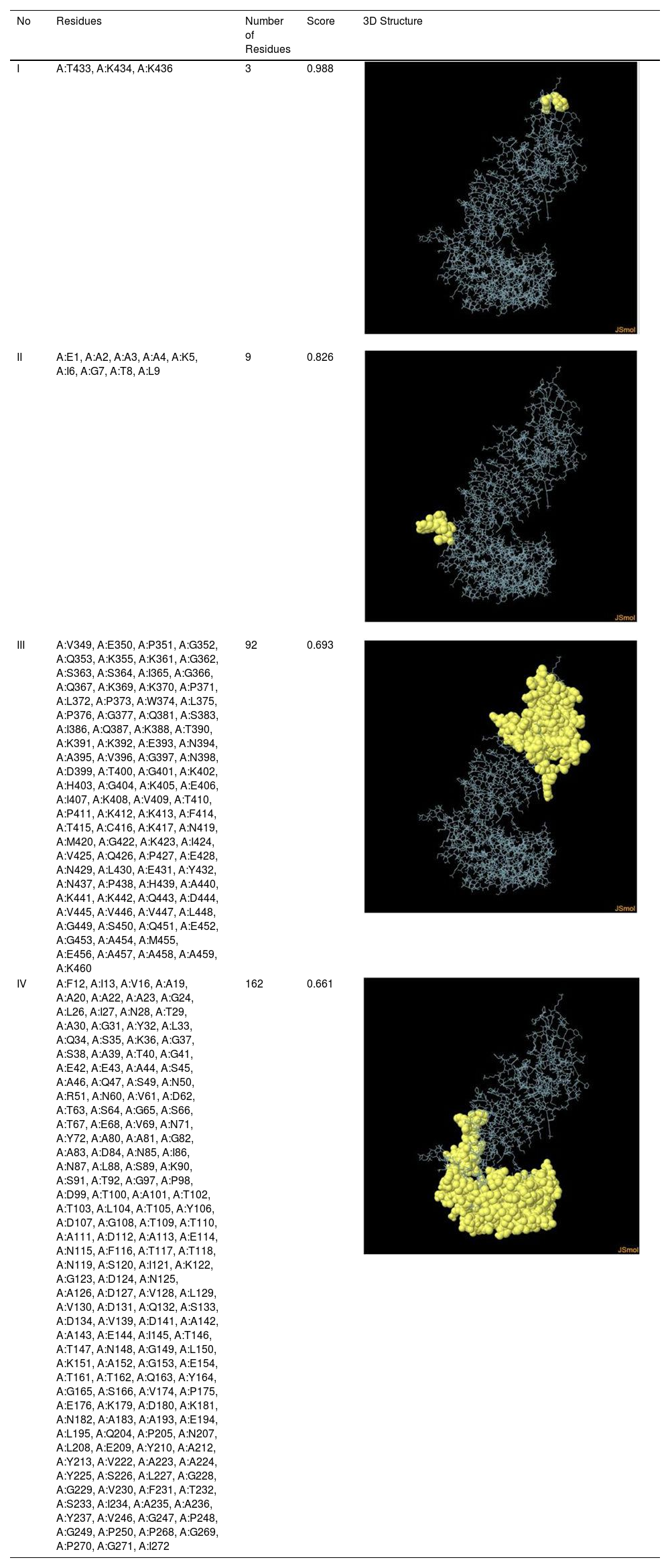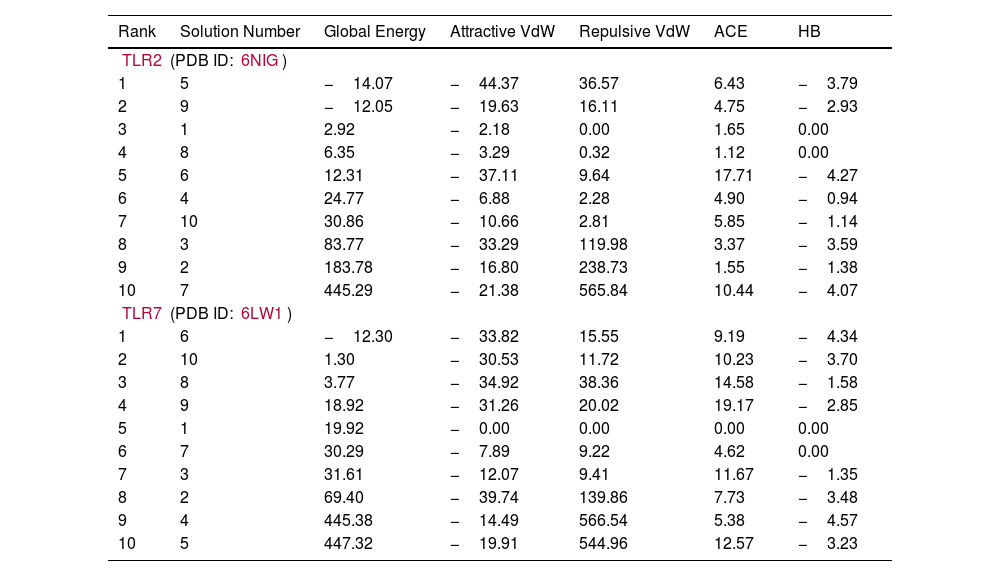Dengue viral infection affects approximately 130 countries worldwide. According to WHO reports, 40% of the global population lives in rural areas with a high risk of contracting dengue. Researchers have identified four distant strains of the dengue virus, and a single vaccine has not permanently controlled the emergence of all four distant strains. Therefore, a vaccine is required for each of the four strains to address the current situation.
ObjectivesThe objective of this study was to design a multi-epitope-based vaccine for the dengue virus-2 strain that elicits a robust immune response while being safe and non-allergenic.
ResultsFirstly, we analyzed the envelope protein for its physicochemical and antigenic properties. Next, we predicted MHC I, MHC II, and B-cell epitopes with high accuracy and evaluated their properties. Then, we constructed a vaccine using a suitable adjuvant and linkers, and predicted the secondary and tertiary structure of the vaccine, and the tertiary structure was validated. After conducting molecular docking with toll-like receptors, we utilized the best-docked result for molecular stimulation. Finally, we analyzed the immune stimulation against the vaccine, and the results showed positive immune responses from macrophages, DC cells, T-cells, and B-cells. Additionally, we found that the vaccine was excreted from the human body.
ConclusionsOur study demonstrates the potential of using immunoinformatic tools and immunological knowledge to design a multi-epitope-based vaccine for the dengue virus-2 strain. This approach could be applied to designing vaccines for other diseases, and further studies are required to validate its effectiveness in vivo.
La infección viral por dengue afecta aproximadamente a 130 países a nivel mundial. Según informes de la OMS, el 40% de la población mundial vive en zonas rurales con alto riesgo de contraer dengue. Los investigadores han identificado cuatro cepas distantes del virus del dengue y una sola vacuna no ha controlado permanentemente la aparición de las cuatro cepas distantes. Por lo tanto, se requiere una vacuna para cada una de las cuatro cepas para hacer frente a la situación actual.
ObjetivosEl objetivo de este estudio fue diseñar una vacuna basada en múltiples epítopos para la cepa del virus del dengue-2 que provoque una respuesta inmunitaria robusta a la vez que sea segura y no alergénica.
ResultadosEn primer lugar, analizamos la proteína de la envoltura en cuanto a sus propiedades fisicoquímicas y antigénicas. A continuación, predijimos epítopos de MHC I, MHC II y células B con gran precisión y evaluamos sus propiedades. Luego, construimos una vacuna utilizando un adyuvante y enlazadores adecuados, y predijimos la estructura secundaria y terciaria de la vacuna, y se validó la estructura terciaria. Después de realizar el acoplamiento molecular con receptores tipo toll, utilizamos el mejor resultado acoplado para la estimulación molecular. Finalmente, analizamos la estimulación inmunológica contra la vacuna y los resultados mostraron respuestas inmunológicas positivas de macrófagos, células DC, células T y células B. Además, encontramos que la vacuna se excretaba del cuerpo humano.
ConclusionesNuestro estudio demuestra el potencial del uso de herramientas inmunoinformáticas y conocimiento inmunológico para diseñar una vacuna basada en múltiples epítopos para la cepa del virus del dengue-2. Este enfoque podría aplicarse al diseño de vacunas para otras enfermedades, y se requieren más estudios para validar su eficacia in vivo.









